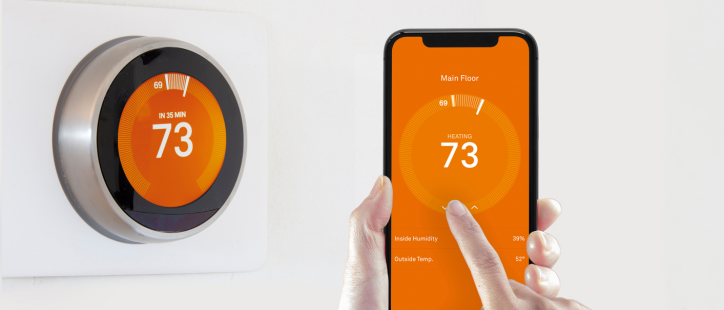As experienced HVAC technicians servicing homes and businesses across The North Shore and Merrimack Valley in Massachusetts, we have witnesses firsthand the impact that heating, ventilation, and air conditioning (HVAC) systems have on indoor air quality (IAQ). The relationship between HVAC and IAQ is complex and multifaceted, and it’s crucial to understand how these two elements are intricately intertwined to one’s well-being and comfort.
Understanding Indoor Air Quality (IAQ)
Before we explore the relationship between HVAC and IAQ, it’s essential to grasp what IAQ encompasses. IAQ refers to the quality of the air within a building, including homes, offices, schools, and other indoor spaces. It involves various factors that collectively define the healthiness and comfort of the indoor environment, such as:
- Airborne Contaminants: These can include allergens, particulate matter, dust, pollen, mold spores, and volatile organic compounds (VOCs) emitted from household products.
- Temperature and Humidity: Proper control of temperature and humidity levels is essential for comfort and preventing mold growth.
- Ventilation: Adequate ventilation ensures the circulation of fresh outdoor air and the removal of indoor air pollutants.
- Carbon Dioxide (CO2) Levels: Monitoring and controlling CO2 levels is crucial to maintaining proper air exchange and preventing stuffiness.
The Role of HVAC in IAQ
Now, let’s explore how HVAC systems are intricately linked to IAQ:
- Air Filtration: HVAC systems include air filters that capture dust, pollen, allergens, and other airborne particles. High-efficiency filters can trap even smaller particles, enhancing IAQ by reducing the number of pollutants circulating in the air.
- Ventilation: Proper ventilation is a cornerstone of IAQ. HVAC systems play a vital role in ventilating indoor spaces by introducing fresh outdoor air and exhausting stale indoor air. Mechanical ventilation systems, such as energy recovery ventilators (ERVs) and heat recovery ventilators (HRVs), can further enhance the exchange of indoor and outdoor air while maintaining energy efficiency.
- Humidity Control: HVAC systems can help regulate indoor humidity levels, which are critical for IAQ. Excess humidity can lead to mold growth and discomfort, while insufficient humidity can cause dryness and irritation. Humidity control features in HVAC systems maintain the ideal balance.
- Temperature Control: Maintaining a consistent and comfortable indoor temperature is another essential aspect of IAQ. HVAC systems ensure that temperature remains within the desired range, contributing to occupant comfort.
- Filtration Upgrades: For improved IAQ, HVAC systems can be equipped with specialized filters, such as HEPA (High-Efficiency Particulate Air) filters and activated carbon filters, which can capture even smaller particles and VOCs.
- Regular Maintenance: Proper maintenance of HVAC systems is crucial for preserving IAQ. Dirty or neglected systems can become sources of contamination, circulating pollutants throughout the building. Regular HVAC maintenance, including filter replacement and duct cleaning, prevents these issues.
- Zoning and Air Purification: Advanced HVAC systems offer zoning capabilities, allowing for customized temperature and humidity control in different areas. Air purification technologies, such as UV germicidal lamps and air purifiers, can also be integrated into HVAC systems to eliminate airborne bacteria, viruses, and allergens.
Learn More
We’re ready to elevate your comfort to new levels. Get in touch with us today to learn more about HVAC systems and IAQ solutions and let us create a comfortable environment for you.



